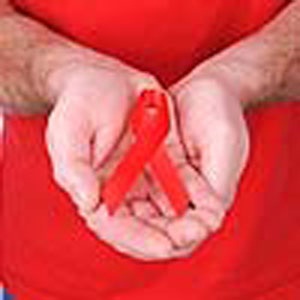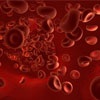
This year, globally 25.4 million people have been living with HIV, compared to 24.4 million in 2002. Just under two thirds (64%) of all people living with HIV are in sub-Saharan Africa, as are more than three quarters (76%) of all the women living with HIV.
In the same region, 7.4% of adults are HIV-positive. South Africa has 5.3 million HIV-positive people, making it the country with the highest prevalence rate in the world.
But although the infection rates seem to be stabilising in sub-Saharan Africa, experts warn that the battle has only started. In Southern Africa there are only slight hints of possible future declines in HIV prevalence.
"Unless something changes, it still means that 5 million South Africans will be infected each year and the same number of people will die of Aids each year," says Dr Debbie Bradshaw of the MRC Burden of Disease Research Unit.
Women, especially young women between 15 and 24 years, are most vulnerable. In sub-Saharan Africa, 76% of young people living with HIV are female. In South Africa, Zimbabwe and Zambia, young women are three to six times more likely to be infected with HIV than their male counterparts.
Why are women so vulnerable?
"Young women are vulnerable on two levels," says Bradshaw. "In the first place, women are biologically more vulnerable to infection than men. Secondly, younger women are more vulnerable than older women, but the exact reasons for this are unclear. It is not that they are more sexually active," according to Bradshaw.
Inequality between men and women contributes to the risk. Most women around the world become infected through their partner's high-risk behaviour, over which they wield little, if any, control.
In southern Africa, women and girls often get infected with HIV almost as soon as they start having sex. In Zambia, 18% of women who said they had been virgins a year before being tested for HIV were found to be HIV-positive, while in South Africa, 21% of sexually active girls 16-18 years of age tested HIV-positive.
For many girls, violence or coercion marks their first experience of sex. In South Africa, 10% of sexually experienced young women say they had been forced to have sex.
Ignorance also increases the risk of infection. A UNICEF survey found that up to 50% of young women in high-prevalence countries did not know the basic facts about AIDS. In some communities, social norms result in a dangerous ignorance in girls and young women, who often are expected to know little about sex and sexuality, including safer sex.
Sex between young women and considerably older men is common in many countries, including in Asia, the Caribbian and sub-Saharan Africa. In Africa, this phenomenon is often tied to the prestige of families that bond for mutual benefit. Another factor is the financial need on the part of the woman.
What is the answer?
UNAIDS suggests that HIV-prevention programmes need to be expanded and that there should be better access to equal education for boys and girls. Secondary education can be a protective factor for girls.
There should also be better access to healthcare, including antiretroviral treatment (ART). Nine out of ten people who need antiretroviral treatment – the majority of them in sub-Saharan Africa – are not receiving it. In South Africa half a million people infected with the virus are currently in need of ART, according a report by the Centre for Actuarial Research at UCT.
"In the absence of ART, Aids deaths would be expected to rise to nearly half a million a year by 2010. With ART this number is expected to fall to 380 000. However, this depends on the extent of the roll out and could range from as low as 290 000 if 90% coverage were achieved in nine years, to 450 00 if only 20% coverage are achieved," states the actuarial report.
A massive effort is needed on a scale that matches that of the global Aids epidemic. Without rigorous HIV-prevention strategies that deal boldly with the epidemic, and that also address the wider imperatives of social justice and equality, the world is unlikely to gain the upper hand over Aids in the long run, according to UNAIDS. - (Health24)




 Publications
Publications
 Partners
Partners















